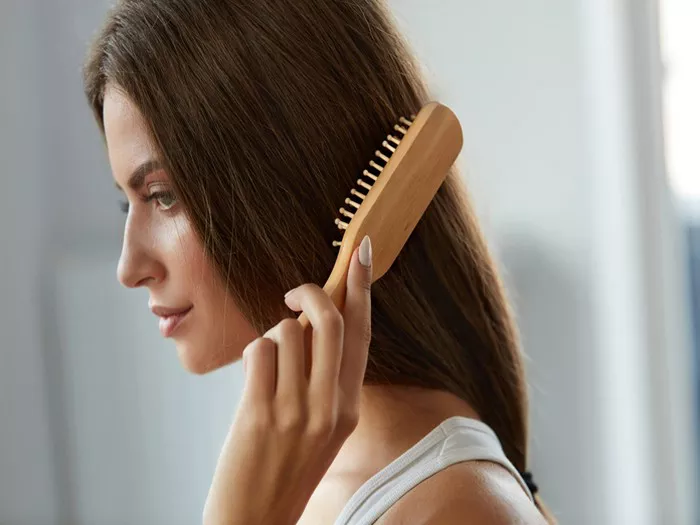Hair loss, medically termed alopecia, can be a distressing condition affecting both men and women. While genetics, hormonal imbalances, and certain medical conditions contribute significantly to hair loss, the role of birth control in exacerbating or preventing this issue has gained attention in recent years. For individuals seeking contraception options while also being mindful of their hair health, selecting the right birth control method is crucial. In this comprehensive guide, we delve into the relationship between birth control and hair loss, explore various contraceptive options, and highlight the best choices to prevent hair loss.
Understanding the Link Between Birth Control and Hair Loss
Hormonal fluctuations play a pivotal role in regulating hair growth and loss cycles. Androgenic hormones, particularly dihydrotestosterone (DHT), have been implicated in male and female pattern baldness. Estrogen, on the other hand, is known to promote hair growth by prolonging the anagen (growth) phase of the hair follicles. Thus, birth control methods that alter hormone levels can potentially impact hair health.
Combined hormonal contraceptives (CHCs), such as birth control pills, patches, and vaginal rings, contain both estrogen and progestin. Progestin-only contraceptives, including pills, injections, implants, and intrauterine devices (IUDs), solely feature progestin. Both types of contraceptives influence hormone levels in the body, albeit in different ways.
Birth Control Pills and Hair Health
Birth control pills are widely used and are available in various formulations, typically categorized as monophasic, biphasic, or triphasic based on their hormone levels throughout the menstrual cycle. These pills primarily work by suppressing ovulation, thickening cervical mucus, and altering the endometrial lining.
For individuals concerned about hair loss, choosing the right type of birth control pill is essential. While estrogen in combined pills can promote hair growth, certain progestins might counteract this effect by increasing androgen levels, potentially leading to hair thinning or loss. Therefore, opting for pills containing progestins with lower androgenic activity, such as drospirenone or norgestimate, may be beneficial for preserving hair health.
Furthermore, pills with lower estrogen doses may be preferred, as high estrogen levels can sometimes trigger hair shedding in susceptible individuals. However, it’s essential to consult a healthcare provider before making any changes to your contraceptive regimen, as individual responses to birth control pills can vary.
Progestin-Only Contraceptives and Hair Loss
Progestin-only contraceptives, commonly known as mini-pills, offer an alternative for individuals who cannot tolerate estrogen or have specific health concerns that preclude the use of combined contraceptives. These contraceptives primarily work by thickening cervical mucus, inhibiting sperm penetration, and, in some cases, suppressing ovulation.
While progestin-only contraceptives generally pose a lower risk of systemic side effects compared to combined pills, they may still affect hair health, particularly in individuals sensitive to androgens. Certain progestins, such as levonorgestrel and norethindrone, have higher androgenic activity and may contribute to hair loss in susceptible individuals.
In contrast, newer progestins like desogestrel and drospirenone exhibit anti-androgenic properties, making them potentially suitable options for individuals concerned about hair loss. Progestin-only contraceptives, such as the etonogestrel implant (Nexplanon) and the levonorgestrel-releasing intrauterine system (Mirena), offer long-acting, low-maintenance contraception with minimal systemic hormonal exposure, which may be advantageous for those prioritizing hair health.
Non-Hormonal Contraceptive Options
For individuals seeking contraception without hormonal influence, non-hormonal methods like barrier methods (e.g., condoms, diaphragms) and fertility awareness-based methods offer viable alternatives. These methods do not interfere with natural hormone levels and thus do not directly impact hair health.
Additionally, copper intrauterine devices (IUDs), such as the ParaGard, provide highly effective, long-term contraception without hormonal components. While copper IUDs may cause heavier periods and increased cramping in some individuals, they do not affect hormone levels and are unlikely to contribute to hair loss.
Combination Approaches for Hair Health and Contraception
In some cases, a combination approach involving both hormonal and non-hormonal methods may be desirable for individuals seeking effective contraception while minimizing the risk of hair loss. For example, using a non-hormonal contraceptive method in conjunction with a low-dose estrogen birth control pill or a progestin-only contraceptive with anti-androgenic properties may offer a balanced approach to hormone management while preserving hair health.
Conclusion
Choosing the best birth control to prevent hair loss involves careful consideration of individual factors, including hormonal sensitivity, health history, and contraceptive preferences. While hormonal contraceptives can influence hair health through their effects on hormone levels, selecting formulations with lower androgenic activity or opting for non-hormonal methods may help mitigate the risk of hair loss.
Ultimately, consulting with a healthcare provider is crucial in determining the most suitable contraceptive option based on individual needs and priorities. By weighing the benefits and potential risks of different birth control methods, individuals can make informed decisions to protect both their reproductive health and hair wellness.


